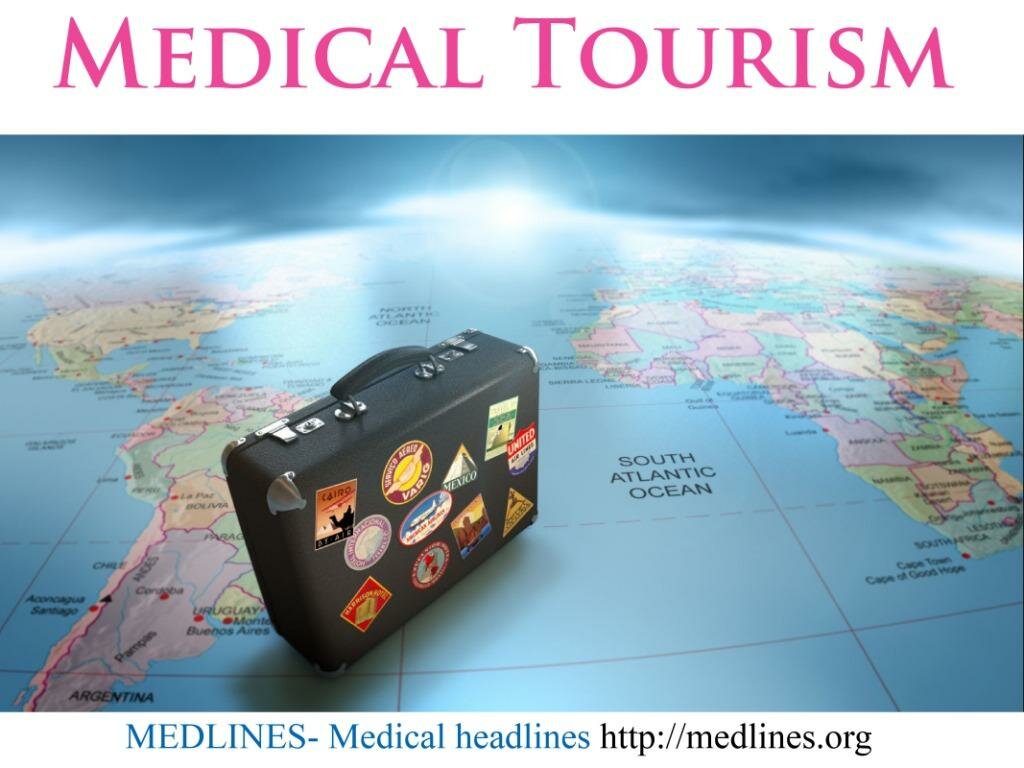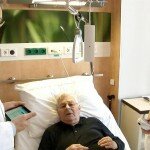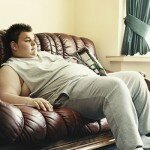
Doctors Hospital Chief: Medical Tourism Better in Bahamas
t the corner of Collins Avenue and Shirley Street with palm trees at his back, Barry Rassin stands outside Doctors Hospital and watches the Caribbean sun set on realities of the day.
Rassin, president of The Bahamas-based Doctors Hospital Health System Ltd., has big dreams that, he believes, medical tourism can help fulfill.
With plans to launch a stem cell treatment center, an in vitro fertilization facility, a cochlear implant center and an international spine surgery program, as well as expanded high-intensity-focused ultrasound treatment for prostate cancer, Rassin wants both feet firmly planted for when the promise of medical tourism comes ashore on the more than 700 islands, cays, and inlets that make up the commonwealth. The last thing Rassin wants is to miss the boat on a potential new revenue stream through The Bahamas.
“Right now, 18 percent of our revenue is coming from medical tourism,” said Rassin. “That includes tourists who happen to come here, and the HIFU (high-intensity-focused ultrasound) program, and there are handfuls that come for all odds and ends. I’d like to take that to 50 percent.”
Doctors Hospital Health System Ltd., a member of the Medical Tourism Association®, Rassin says, could bear witness to — sooner, rather than later – that possibility if he could get The Bahamas Medical Council to relax stringent requirement that insist doctors who come to the commonwealth a few times a year to be covered by an annual $10,000 work authorization permit.
One Price Fits All
In the meantime, Rassin is promoting the ability of Doctors Hospital to offer aftercare therapies, something that medical tourism patients may not be able to get in nearby locations in the Caribbean or as far away as India.
It’s part of a Doctors Hospital strategy to “bundle costs” of service into one fixed price – at about 35 percent less than those for similar treatments in the United States — aimed at attracting American employers who are looking at medical tourism as a means to offer their employees quality care without compromising the company’s bottom line.
Renée-Marie Stephano, president of the Medical Tourism Association®, said U.S. employers who take advantage of bundled case rates can reduce the cost of providing their employees with top-notch care.
“Hospitals that negotiate preset, consolidated prices for planned medical procedures including fees for surgeons, anesthesiologists – all care up until a patient is discharged – are very attractive to U.S. employerswho aren’t content to sit around and wait for the full implications of the Affordable Care Act to surface,” said Stephano, who encouraged hospital administers, doctors and clinician, employers and insurance executives and travel and tourism interest to meet, discuss and form partnerships at the 7th World Medical Tourism & Global Healthcare Congress, Sept. 20-24, 2014, in Washington, D.C. “Strategies designed to reduce costs without yielding on the quality of care provided are moving U.S. companies of all sizes to take a long, hard look at medical tourism – and what better place to do so than in The Bahamas.”
Leveling Playing Field
Stephano said that while reduced costs may be enough to entice a patient to act on travel, the potential to bring along a personal choice of physician could make all the difference in a decision to seek medical tourism procedures or treatments abroad.
“We can’t compete with Costa Rica, Mexico, India, Thailand or Singapore, their cost structure is so much less,” said Rassin. “We are creating a model in which we want to bring surgeons from the U.S. here with their patients. We believe it’s very important to do post-op follow up so that a patient coming to The Bahamas with their surgeon will come here and get the surgery and then they’ll go back and have all the follow up care.”
Surgeons who work in the Canadian public healthcare system have gained noticed for accompanying their patients to the Caribbean, where they can get a license for a fee and perform shoulder, knee, hip and other operations at local facilities. Most of these Canadian patients return home for post-op care.
Rassin hopes a collaborative approach with the Ministry of Tourism can be taken to overcome roadblocks — like costly doctor permits – that limit access to overseas patients and medical tourism revenues.
“It’s really more beneficial for (The Bahamas) than it is for Doctors Hospital Health System,” said Rassin. “We get out-patient surgery out of most of them; they’re in for a few hours. (Doctors Hospital) will get a few dollars, but (the patients) are going to stay in a hotel for anywhere from three nights to 14 nights. On average, a medical tourism patient travels with three other people – just do the math. I think the country will benefit a whole lot.”

Roads from China
Rassin should be encouraged by recent talks between Bahaman business leaders and the Chinese government to establish the commonwealth as a “global tourism base.” These meetings focused on development of an airlift from cities in mainland China that would enable easier access to travel for healthcare consumers, among other tourists between the two countries.
At the end of last year, The Bahamas and China signed a mutual visa exemption agreement in the hopes that one less trip to the consulate may make more Chinese travelers consider a trip to the tropical island chain.
The agreement catapults The Bahamas among top destinations including North America, Europe and Australia for more than 70 million Chinese tourists who frequently travel internationally.
China, which a new study by the 2011 International Comparison Program predicts is poised to overtake the United States as the world’s number one economy, sends more than 60,000 medical tourism patients abroad — particularly to Thailand, India, South Korea and Singapore – for procedures and treatments.
Rassin says Doctors Hospital Health System Ltd., which includes Bahamas Medical Center and Doctors Hospital in Nassau, the first Joint Commission International-accredited facility in the Caribbean, is positioned to service Chinese or any other world travelers contemplating medical tourism opportunities in a tropical island paradise.
For each of the international programs that Doctors Hospital hopes to create, Rassin said that local professionals specialized in those areas will be involved.
Doctors Hospital is already receiving “a lot of calls” about IVF in The Bahamas, Rassin said, while noting that as many as 15-20 cochlear implant procedures will soon be conducted at the proposed facility.
source: http://www.medicaltourismnews.com/2014/05/03/doctors-hospital-chief-medical-tourism-better-in-bahamas/
Pin It





 Follow Us on Twitter
Follow Us on Twitter Be Our Fan on Facebook
Be Our Fan on Facebook













Leave a Reply